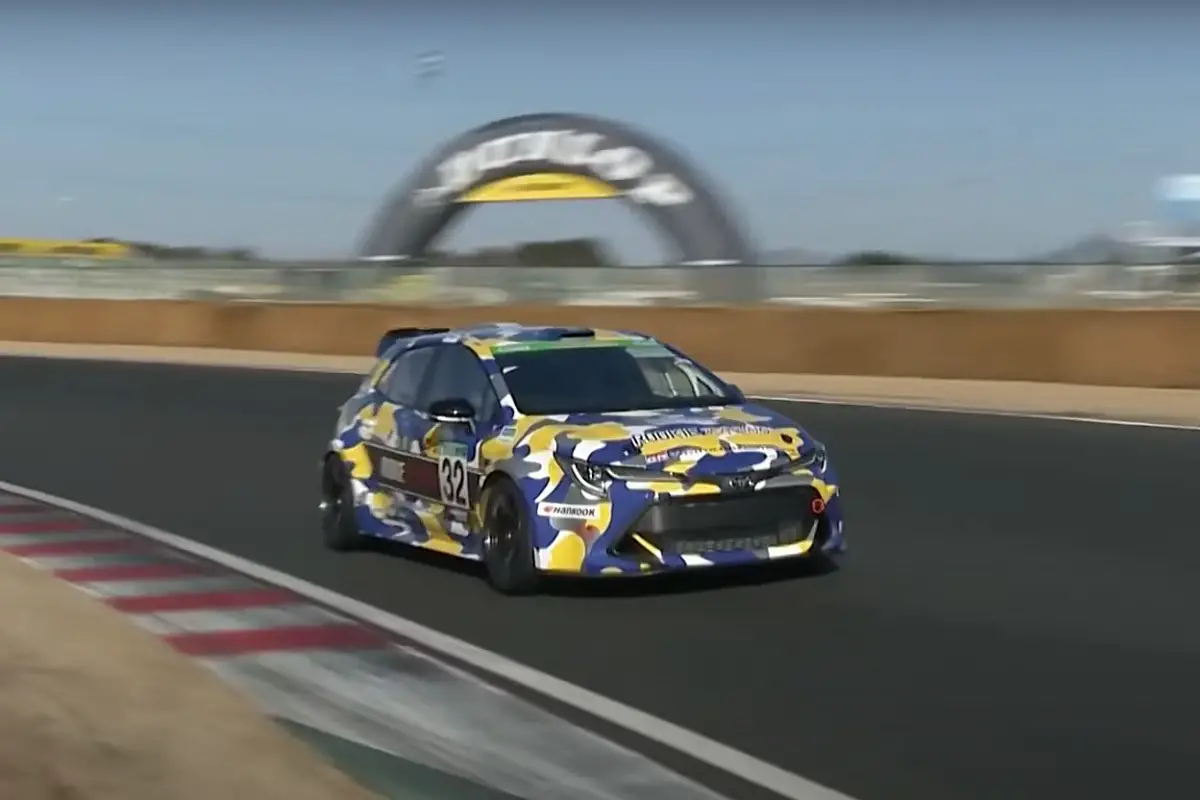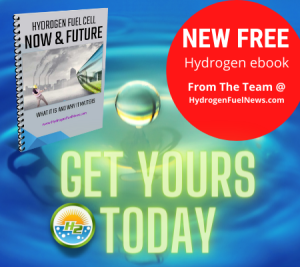
Toyota liquid hydrogen car to be tested in endurance races this year
January 9, 2023The automotive company seeks to make H2 vehicles commercially viable.
It’s well known that Toyota Motor is invested in developing hydrogen-powered vehicles, and the company intends to test its current liquid hydrogen car in 2023 endurance race events for the purpose of improving upon the technology.
The company hopes to address certain challenges the car faces.
Toyota hopes that by subjecting the car to endurance races, it will improve the nascent technology’s functionality as well as address some of it challenges. One of these challenges is how to keep liquid hydrogen at -253 degrees Celsius.

The reason the company is focusing on a liquid hydrogen car is that when used in its liquid form instead of its gaseous state, hydrogen can double the mileage of a car. This would make it possible for hydrogen refuelling stations to be built smaller.
Additionally, while gaseous hydrogen tanks work well for commercial vehicles, Toyota feels that liquid hydrogen tanks are more sensible for passenger cars due to the fact that they allow for greater flexibility when it comes to their shape, and they are lighter than H2 gas tanks
The liquid hydrogen car won’t be the first H2 car Toyota has tested in endurance races.
Toyota has previously used endurance races to test and accelerate the viability of hydrogen fuel vehicles. Back in May 2021, it debuted a car equipped with a hydrogen-powered combustion engine. During the 24-hour race at the Fuji International Speedway in Shizuoka Prefecture, the specially adapted Toyota Corolla fueled by hydrogen was piloted by Toyota President Akio Toyoda, as well as other drivers.
At its maiden appearance, the H2-enhanced Toyota Corolla ran for 11 hours and 54 minutes. After which, the vehicle spent eight hours being repaired and four hours refueling. Last November (2022), Toyota raced the car again, this time with additional enhancements, including improving the engine’s output by 24% and its driving range by approximately 30%. The cases of abnormal fire-causing combustion in the engine was reduced as well.
“We’ve made a small move from testing the technology toward a product that can be mass-produced,” said Toyota’s chief branding officer, Koji Sato.
Toyota began test runs of its liquid hydrogen car at the end of October and will enter endurance races later this year.



 With over 15 years of reporting hydrogen news, we are your premier source for the latest updates and insights in hydrogen and renewable energy.
With over 15 years of reporting hydrogen news, we are your premier source for the latest updates and insights in hydrogen and renewable energy.
As a consumer I tend to beleive that hydrogen is the future rather than battery operated vehicles because as the research shoes that batteries are in greater need of rare mined/refined materials which seems to equal to more mining= more pollution and damages to our planet. Isn’t it enough that in this 21st century we still have wars and polite like their was no tomorrow. I beleive mother earth will and can defend itself I’m more worried about the innocent lives which = to crimes against humanity as (we) know of the possible damages to life and humans.
Statistics available show there is over $270 BN of projects for production and storage of hydrogen already underway with much more on the way. By 2030 the hydrogen fuel cell market is expected to be $50 to $60 BN according to some market research. Yet the Hydrogen Refuelling Station market is only expect to be about $4 BN by 2030. Time and time again people in the industry say the holdup in the mass production and use of any type of fuel cell vehicle is the lack of HRS infrastructure. More fuel cell vehicles would sell with more Hydrogen Refuelling stations were available. Maybe at this point the industry and govn’t should accelerate the funding for these projects. Maybe an amount closer to $10 BN or $15 BN of HRS project funding by 2030 would get the ball rolling !
This is great technology. My only concern is the lack of liquid H2 fueling infrastructure in the U.S. I would buy a LH2 ICE vehicle right now if I knew I could fuel it.
Great action from Toyota!
I have 100 gallons of liquid Nitrogen, how much energy does it take to keep the liquid Nitrogen cool per 24 hour period?